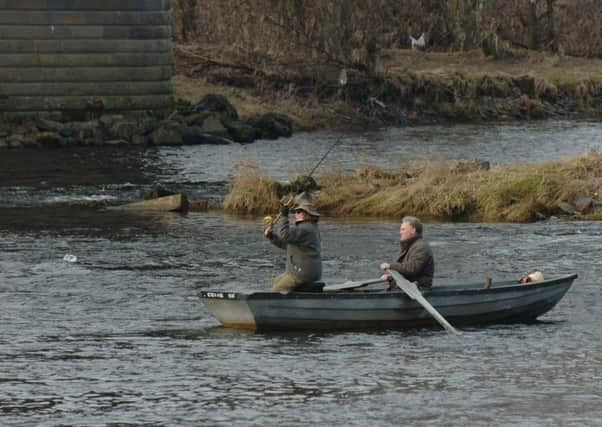Council united against River Tweed reforms


The reform of wild fisheries is a key policy plank of the Scottish Government which last year commissioned an independent review and is expected to present legislation to Holyrood early next year.
That review has recommended that the 81-member RTC should be abolished and replaced by a new fisheries management organisation (FMO) – one of a network of such regulatory bodies across Scotland.
Advertisement
Hide AdAdvertisement
Hide AdUnder the proposals, the annual £750,000 which the RTC raises from a levy on beat owners to support all aspects of Tweed management would go to a new Scottish Government organisation – the National Wild Fisheries Unit – and could be redirected to the country’s less successful fisheries.
At last week’s meeting of Scottish Borders Council, there was unanimous support for a motion calling on leader Councillor David Parker to write to the Scottish environment minister Dr Aileen McLeod “expressing concerns” over the proposals.
Supporting the motion, Councillor Alec Nicol (Lib Dem, Kelso and District) said the law makers should, instead, consider reforming those Scottish fisheries which had little or no effective management – not a catchment which was so well run it supported 500 full-time jobs and brought in an annual £20m to the local economy.
In his letter, Councillor Parker says the RTC and its scientific subsidiary The Tweed Foundation are “exemplars in the management of freshwater fisheries”.
Advertisement
Hide AdAdvertisement
Hide Ad“The council does not see any requirement to remove RTC’s role in the management of the Tweed river system or to replace it with another body which could be to the detriment of our ecology and economy if existing skills and expertise are lost,” states Councillor Parker.
“The RTC operates without central or local government grant funding and this council does not consider the levies raised in one area of the country should be used to subsidise activities in another area.
“This runs the risk of diminishing the internationally recognised reputation and management of a river system which is currently enhanced by the work of the RTC.”
The council also agreed to request informal talks with Scottish Government officials to plead the “special case” for the RTC ahead of legislation being drafted.